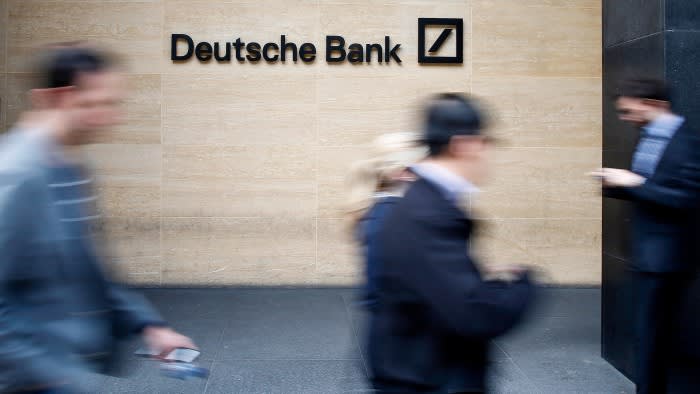Unlock the Editor’s Digest for free
Roula Khalaf, Editor of the FT, selects her favourite stories in this weekly newsletter.
Europe’s investment banks have cut bonuses for a second straight year following a prolonged slump in dealmaking and listings that is now finally showing signs of ending.
Deutsche Bank and BNP Paribas have handed out lower annual bonuses, underlining the hit to the industry after higher interest rates deterred companies from pursuing takeovers and chilled the market for initial public offerings.
Deutsche Bank, Germany’s largest bank, last week announced a 5.5 per cent cut in its bonus pool for last year. The eurozone’s largest bank, BNP Paribas, cut its pool by about 5 per cent, according to a person familiar with the matter.
UBS is set to disclose its bonus pool at the end of March after a testing year for its investment bank, but one in which some Credit Suisse bankers were offered large packages to persuade them to stay.
The hit to bonuses illustrates the twin effects of higher interest rates on many lenders, which have reported a surge in net interest income over the past two years while their investment banking businesses have struggled.
“Everyone is getting hammered — it just depends on where managers chose to hammer more,” said a consultant involved in pay discussions at several banks.
European investment banking fees dropped to $17.2bn last year, down from more than $30bn in 2021 and the lowest total since 2016, according to data provider Dealogic. Bankers in Europe receive less of their income in bonuses because of the EU cap on variable pay.
The weakness across investment banks has not been a drag on European bank shares, however, with the benchmark Stoxx Europe 600 banks index at a six-year high after lenders pledged to deliver more than €120bn to shareholders.
Separately, average bonuses on Wall Street slipped 2 per cent last year to $176,500, according to an estimated released on Tuesday by the New York State Comptroller.
But investment banks are hoping that the revival in dealmaking and listings so far this year will gather momentum.
Europe’s market for IPOs has made its strongest start to a year since the Covid-19 pandemic, with companies raising more than $3bn. At the same time, the volume of mergers and acquisitions has also picked up.
The drought in M&A in 2022 and 2023 marked a sharp contrast with the previous year when a wave of monetary stimulus from central banks in response to the pandemic encouraged companies and private equity firms to pursue deals.
Alongside the drop in its overall bonus pool, Deutsche Bank slashed cash bonuses for its senior executives by up to 50 per cent after a botched IT project triggered chaos for some retail customers.
One outlier in Europe is HSBC, which increased its company-wide bonus pool by 12 per cent after its pre-tax profits for the year rose almost 80 per cent.
